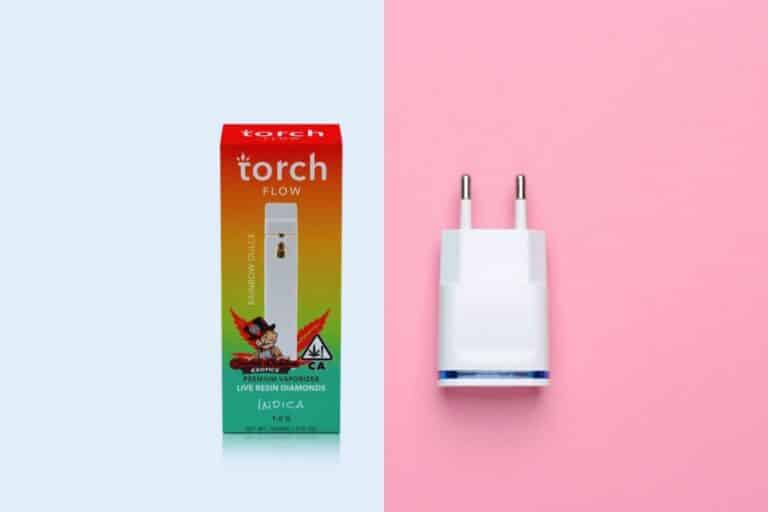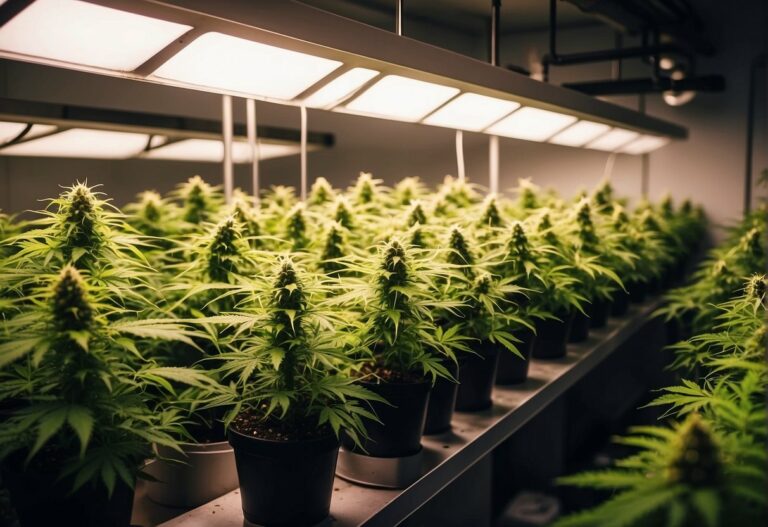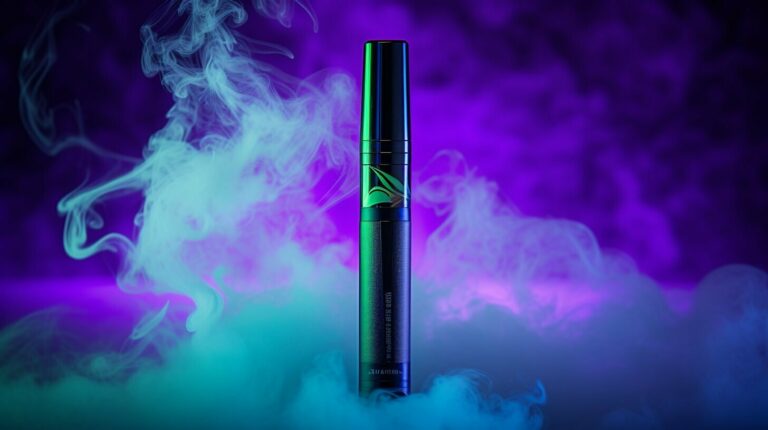Is THCP Legal in New York? Your Essential Guide to the Laws
With the introduction of THCP into the cannabis industry, the game has changed; you can now walk into a store and get a more potent cannabinoid sure to give you the therapeutic or relieving effects you want compared to the others, particularly THC.
However, because of how relatively new THCP is in the market, the status of its legality is an issue that bothers the minds of users over and over again.
No one wants to suffer legal consequences because they got some cannabis so, in this article, we’ll look at the legality of THCP, particularly in the great state of New York.
So, if you’re reading this from New York, hey! and let’s answer the question: Is THC-P legal?
What is THCP?
THCP, or tetrahydrocannabiphorol, is a cannabinoid naturally found in the cannabis plant that has drawn considerable attention due to its potent psychoactive effects.
THCP’s Unique Chemical Structure
Unlike the more familiar Delta-9 THC and other cannabinoid compounds, the THCP cannabis plant features a longer alkyl side chain that significantly increases its binding affinity to CB1 receptors in the brain.
This structural difference is believed to be what accounts for its heightened potency, with early research suggesting that even small doses of THCP could produce effects that are several times stronger than those of Delta-9 THC.
The science understanding the unique properties of this compound is still developing to shed new light on how it interacts with the human endocannabinoid system but alongside its potential as a more powerful psychoactive agent, THCP’s discovery and study let us know other important considerations regarding its therapeutic applications and legal status.
Recent Studies Into THCP’s Chemical Structure
Recent studies into the chemical structure of THCP have revealed that it has a seven-carbon alkyl side chain that plays a pivotal role in its enhanced potency compared to THC.
Unlike THC’s five-carbon chain, the longer alkyl side chain in THCP increases the molecule’s lipophilicity, which leads to stronger interactions with cannabinoid receptors, particularly the CB1 receptor in the central nervous system.
It is a structural modification that not only improves the binding affinity of THCP but also potentially amplifies the downstream signaling effects, thereby contributing to a markedly more potent pharmacological profile. Basically, THCP is way more potent than any other cannabinoid you can try out there.
THCP is more potent than THC, with up to 30 times the amount of effect THC has on its users. Also, a lot of people find it difficult to differentiate between Cannabidiol (CBD) and THCP but the difference is simple – CBD is a non-psychoactive compound found in cannabis and as such, it is known for its therapeutic benefits without the high.
On the other hand, THCP has unique psychoactive effects that far surpass the effects of THC and definitely CBD.
THCP Legality in the United States
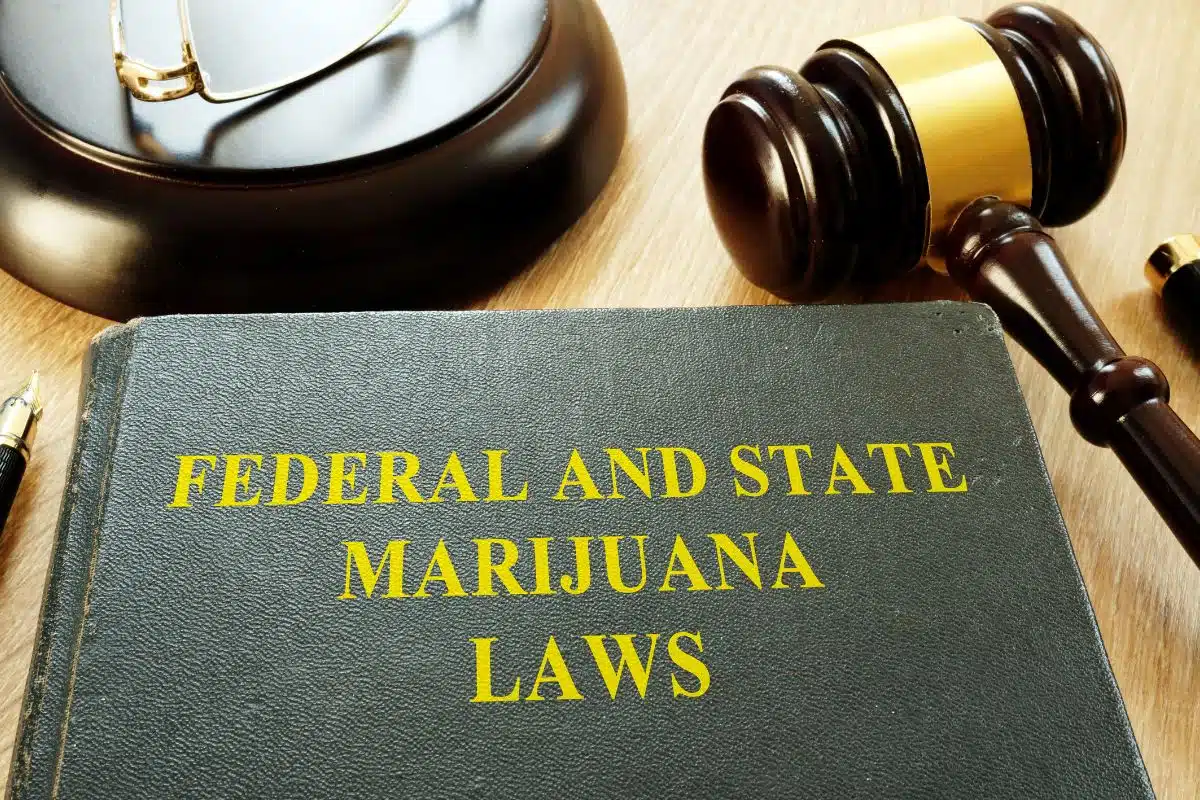
Because of the relative newness of THCP to the scientific literature, regulatory frameworks governing it are still evolving in many jurisdictions, which is why we need to be informed about the latest legal updates and safety guidelines related to THCP use. Now, let’s look at the legal status of THCP under federal and state regulations:
The 2018 Farm Bill
At this point, we’ll talk about the 2018 Farm Bill because it marked a pivotal shift in the U.S. agricultural and drug policy by legalizing hemp and its derivatives, including lesser-known cannabinoids such as THCP.
The legislation clarified that hemp-derived compounds are federally legal as long as the final hemp product contains less than 0.3% Delta-9 THC. As a result, THCP—a hemp-derived cannabinoid attracting interest for its potential pharmacological properties—falls under this legal framework, allowing for the production and distribution of legal THCP products without falling under the strict regulations that govern marijuana.
Generally, at the federal level, hemp products, including those containing THCP, are regulated by the U.S. Department of Agriculture (USDA).
The USDA follows federal regulations to ensure that these products meet specific criteria to maintain their legal status, particularly keeping their potency levels within the prescribed limit. As such, THCP is not considered a controlled substance and is a legal cannabinoid under federal law.
THCP in New York
Being a relatively new potent cannabinoid discovered only a few years ago, THCP hasn’t yet been mentioned by name in New York State law.
It’s an absence that might suggest a gray area where THCP isn’t specifically scheduled as a controlled substance but also, many novel substances like THCP products are often grouped with synthetic cannabinoids, which is a category of cannabis products that New York treats harshly due to concerns over health and safety.
So even though THCP itself might not have been explicitly banned, its association with synthetic hemp cannabinoids creates uncertainty over how it is regulated within the state.
As such, the legal status of THCP in New York is currently unsettled and will require further examination by state authorities.
In practice though, some might argue that not being named on the controlled list could allow for some leniency, and on the other hand, New York’s broader prohibition on synthetic cannabinoids could mean that products containing THCP can be treated as illegal.
So, given this complex legal landscape, consumers, businesses, and legal professionals are advised to keep a close eye on forthcoming legislative guidance and any changes that state regulators announce regarding THCP.
Quality and Safety Standards for THC-P Products
When it comes to THC-P products, quality and safety are fundamental.
Interest in this cannabinoid is growing and consumers are increasingly mindful about using products they can trust. Many people now look for brands that prioritize transparency and care by consistently testing their products so if businesses can work toward meeting these standards, there’ll be more trust between manufacturers and users, and we can make sure that only the best products reach the market.
Third-Party Lab Testing
A key part of this process is third-party lab testing, which confirms the potency, purity, and absence of harmful contaminants in the THCP product.
Independent laboratories work with reputable brands to deliver Certificates of Analysis (COAs) that verify everything from a product’s cannabinoid profile to its compliance with health standards. So, if you’re buying THC-P products, look out for these unbiased tests because they’ll offer you a clear snapshot of what is in each hemp-derived product, allowing you to make informed decisions without having to delve into complex technical details.
Adhering To Set Standards
Meeting state and federal standards is another important aspect of maintaining product integrity. When products adhere to these regulations, they not only contribute to a safer market but also set an example for best practices across the industry.
Potential Risks of THCP
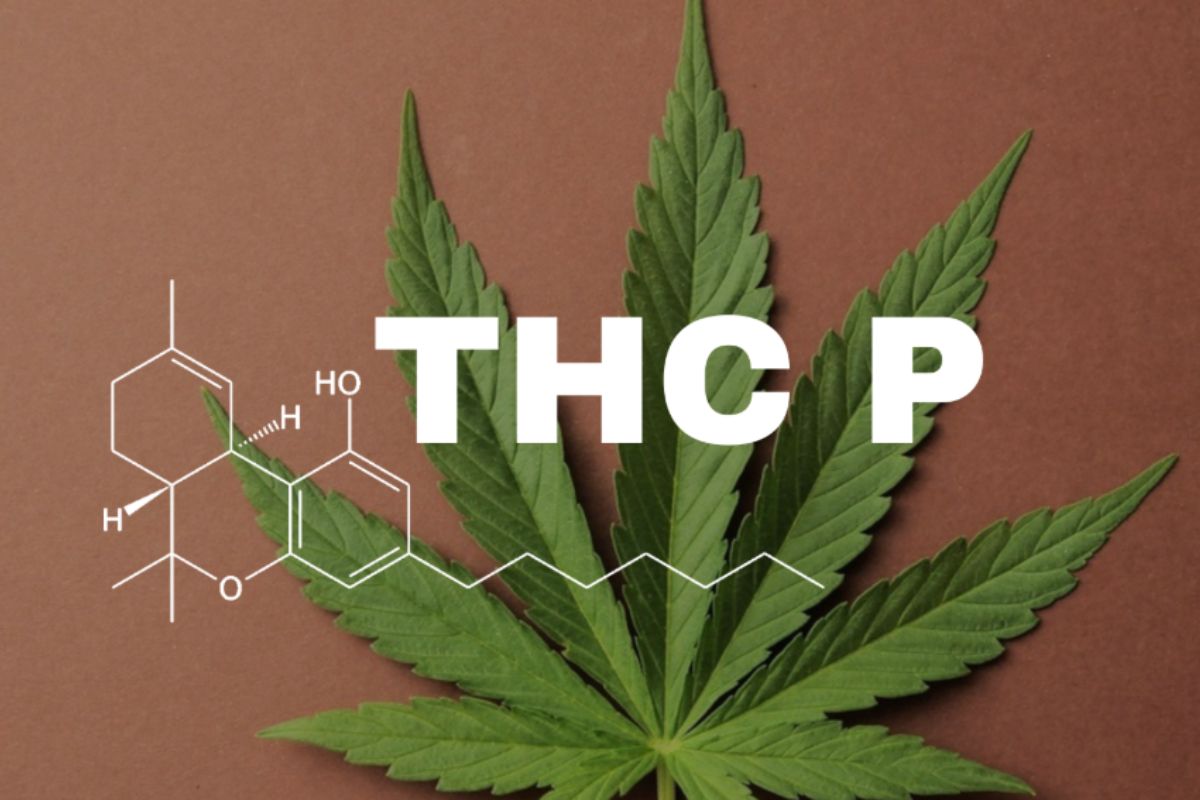
Common Effects
Users of THCP have commonly reported adverse effects like dizziness, dry mouth (xerostomia), and impaired motor coordination.
Rarer Effects
The pronounced psychoactive properties of THCP have also been discovered to lead to more pronounced effects like an increased heart rate, anxiety, and paranoia, particularly in individuals sensitive to hemp-derived cannabinoids.
There have also been reports of dry eyes, sleep disturbances, and nervousness by users. Besides these, the substantial potency of THC-P also increases the risk of overconsumption, which can intensify these adverse effects.
Overall, the long-term health implications of THC-P remain unclear due to the nascent stage of research into it.
This is why users considering THC-P are advised to exercise caution, starting with minimal doses and consulting healthcare professionals, especially those with pre-existing health conditions or concerns about potential interactions with other medications.
THCP Products Available
THC-P is currently gaining more popularity than ever because of companies introducing a variety of products through which different THC-P user needs can be met, whether it’s relaxation, creative inspiration, or relief from everyday stress.
Premium THCP products are currently available in many forms such as pre-filled THC-P vape cartridges that stand out for those who enjoy a quick and robust experience, disposable devices that are pre-charged and ready for use straight out of the package, edible THCP products such as THCP gummies, chocolates, and beverages that provide a more sustained effect as the cannabinoid is slowly absorbed.
THC-P and Drug Tests
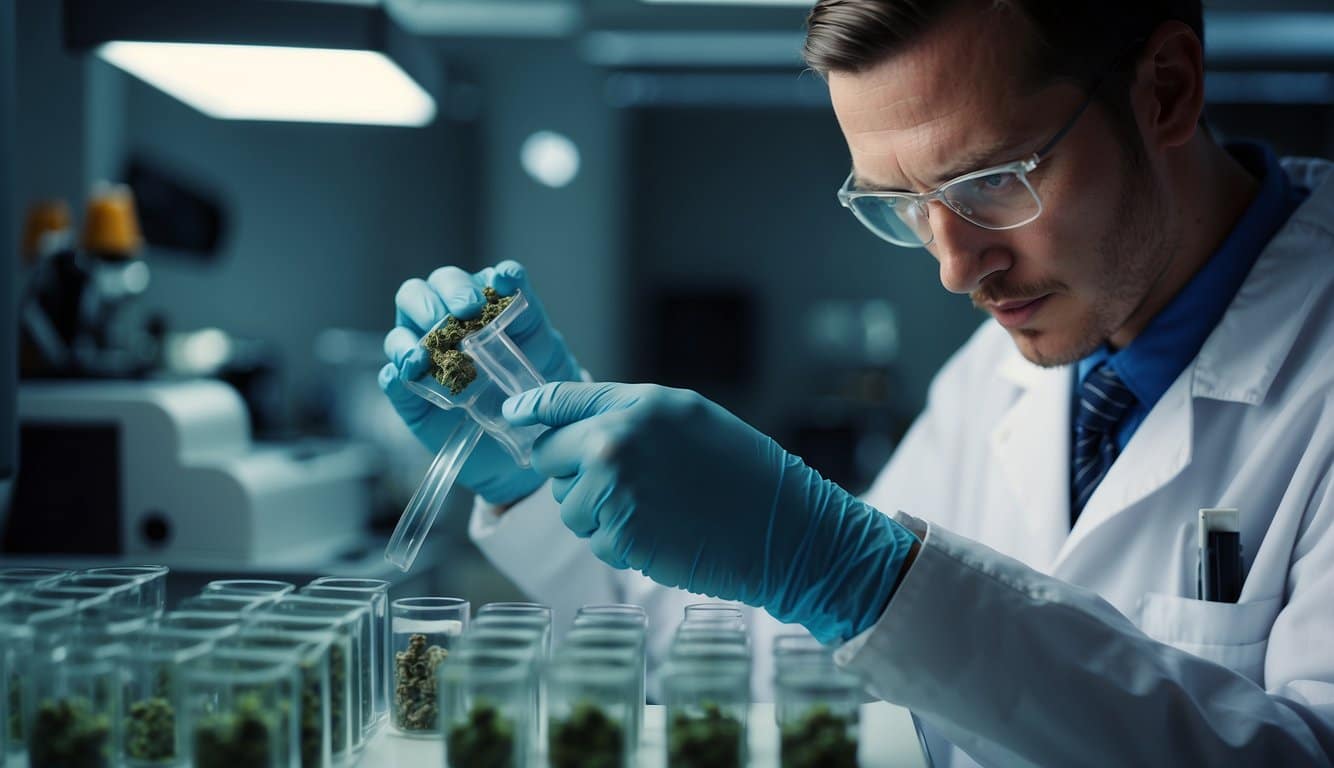
Consuming THC-P can result in a positive drug test anytime.
The gist of it is that standard drug screenings are designed to detect THC metabolites, particularly THC-COOH, which are produced when the body metabolizes THC compounds, including THC-P.
Therefore, even an occasional use of THC-P can lead to detectable levels of these metabolites in your system, increasing the likelihood of a positive test result.
The detection window for THC-P also varies depending on several factors, such as the frequency of use, individual metabolism, and the type of drug test administered.
For instance, urine tests can detect traditional THC metabolites from a few days up to several weeks after use, while hair follicle tests may reveal THC use for up to 90 days. Given these variables, it’s advisable to exercise caution and consider abstaining from THC-P consumption if you anticipate an upcoming drug test.
Conclusion
So, we’ve learned so far that THC-P is a promising new cannabinoid that’s federally legal, with potential therapeutic benefits and associated risks the cannabis community has to deal with.
It’s a great addition to the cannabis market but because of its potency level and limited research information, users are often cautioned about using THCP products in higher doses.
It’s also the reason why regulators are expected to have more conferences aimed at truly defining the legal status of THC-P products in the state and even under federal regulations, even though THCP is legal federally. We need a proper definition of the legal landscape for THCP under specific regulations.
Nevertheless, before you consume these products, make sure you educate yourself on cannabis laws, other local laws and local regulations in your area, and how to consume responsibly, as responsible use will be essential for maximizing the benefits you get while minimizing potential risks.






